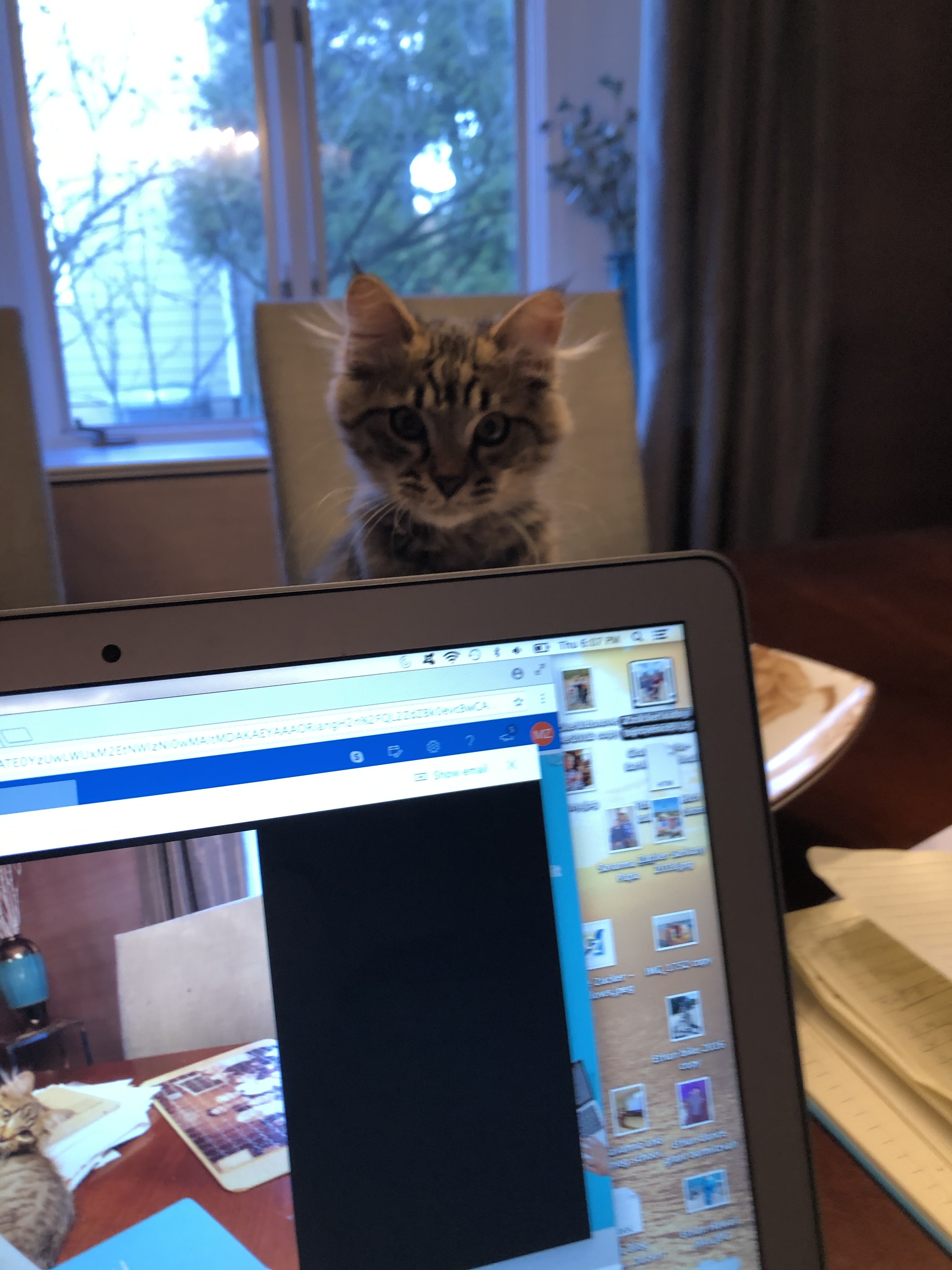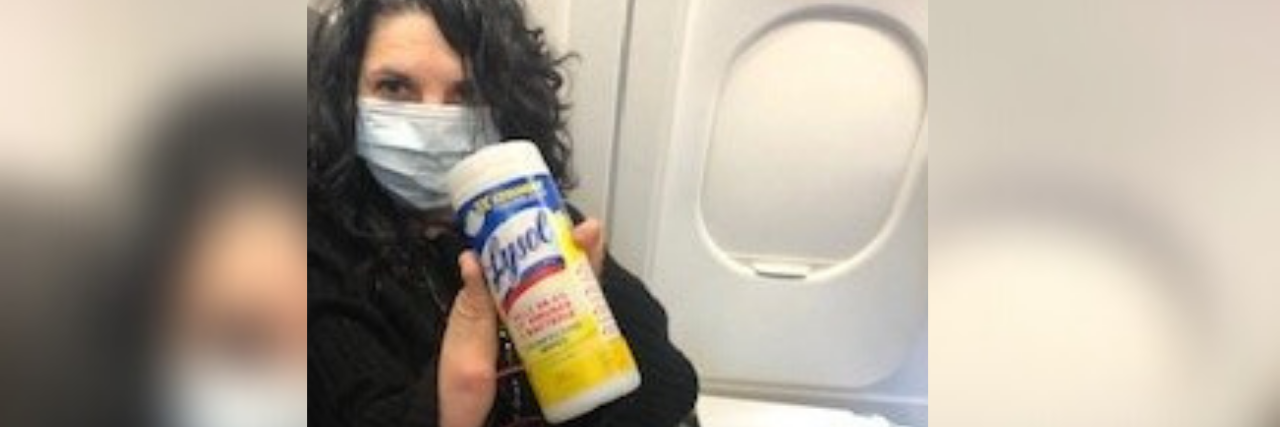Why I Hope We'll Continue to Rethink the Handshake After the COVID-19 Pandemic Ends
Editor's Note
Join The Mighty’s Coronavirus group to connect with other Mighties living through the pandemic. Read the latest updates, share helpful tips, or give and receive virtual support.
Experiencing a pandemic is a very strange and frightening period. For me, a self-proclaimed former hider turned flaunter who was born with a genetic condition called ectrodactyly, leaving me with one finger on each hand, shortened forearms and one toe on each tine foot, it feels like a huge step backward for several different reasons.
First, all the years of effort that it took me to be comfortable in my own skin in public are now meaningless. I mean, the only people that can even stare at me these days are my kids, two of whom share my genetic condition, and my husband, and they prefer staring at Netflix. The only one who is actually staring at me constantly is our hungry cat Cisco, who doesn’t see fingers, but his meal ticket. But I digress.

Originally, the handshake was to indicate you had no weapon and posed no threat. Today, that concept is turned upside down because the very act of shaking the hand of another carries the danger. Recently, I read that Dr. Anthony Fauci said Americans should never shake hands again for obvious reasons. I found that suggestion personally fascinating, given my own life experience of having people shake my hand with reactions of everything from surprise to fear.
When I first met my husband, John, he invited me to a work event. When we arrived, John introduced me to one of the heads of the organization. The man extended his hand to me, so I naturally acquiesced. And then suddenly (but not unexpectedly) there it was. The astonished face. The jump back from touching my one-fingered hand. The attempt to leave and brush past the awkwardness.
I recall a girl with cerebral palsy who was seeking guidance from me as she was looking for a job. The issue for her was that she didn’t really have much control over her right hand. Her mother suggested that she put a red ribbon on that hand to signal they should shake her left instead. I told her if I were interviewing her, I’m not sure I would understand the cue and would likely compliment her on the color of the ribbon.
Others, however, can roll with ease. I have met strangers who can feel my lack of grip, but then confidently press firmly into my tiny hand with a smile that effectively reads, “I accept you. I accept anyone.” I used to wonder if this was a window into their soul. Were they the most wonderful, evolved people and the ones who jumped back from the touch of my hand cold-hearted?
I took comfort for years in this amateur psychoanalysis, believing I had people all figured out. In truth, life is much more complicated then and especially now. From the minute Fauci spoke up, the whole notion of the handshake came under scrutiny. More and more people seem perfectly happy to dispense with the test of character or strength the handshake used to represent. I admit I’m one of them.

For years, to avoid the risk of an awkward handshake moment, I’ve opted to give someone a hug. But actually, those hugs are often too much too soon. I’ve longed for us all to transition to a new normal, no matter if we have a physical difference or not. The limp, clammy, weak or even different-feeling handshake was never a good way to judge a person. And even worse, it created anxiety in many. Maybe it’s time for a change.
So what are our options? Tulasi Srinivas is the author of “The Cow in the Elevator: An Anthropology of Wonder.” When asked in a recent interview on NPR what she suggests replacing a handshake with, Srinivas favors the Namaste greeting — placing your hands near your heart and bowing out of respect. I love the idea that we can offer a gesture that indicates greeting and respect in whatever way we feel comfortable.
These days, sick or healthy, the lack of human touch and interaction has been excruciating. And, there is such irony for me personally — be careful what you wish for. It never occurred to me that a desire to hide my difference from the public and wishing for no more handshakes would also mean I’d lose so much more. And I am well aware of how much we’ve all lost.
At the end of the day, the handshake might not end completely, but this crisis has birthed other creative ways to greet and acknowledge each other. In doing so, I choose to land on the positive. Something as horrific as COVID-19 has at least caused us to question old assumptions and broaden the conversation of how we can find a common, mutually satisfying way to greet one another when we can finally all come back together.
For more on the coronavirus, check out the following stories from our community:
- The Problem With Saying ‘Only’ the Elderly and Immunocompromised Will Be Affected by COVID-19
- If I Get COVID-19 It Might Be Ableism – Not the Virus – That Kills Me
- How America’s COVID-19 Response Is Exposing Systemic Ableism
- Why I’m Worried About Rationing If My Child With Down Syndrome Gets COVID-19
- I’m Afraid I’ll Be Told to ‘Sacrifice’ My Health for COVID-19 Patients
- Please Wash Your Hands Year-Round — Not ‘Just’ Because of the Coronavirus

